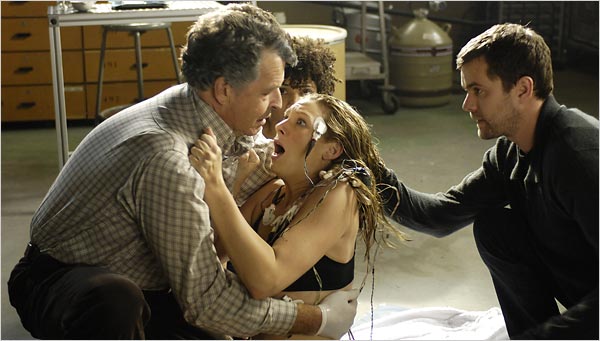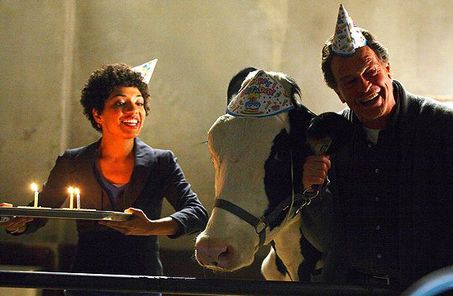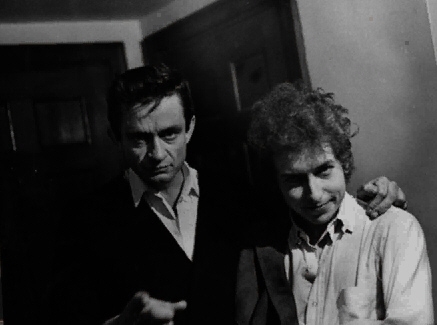 TV
TV In Which We Are On The Fringe Of Things
 Saturday, October 3, 2009 at 9:00AM
Saturday, October 3, 2009 at 9:00AM 
The Edge of Good
by ALEX CARNEVALE
Occasionally a television show gets everything right but botches all one or two large decisions. This happened with Roberto Orci and Alex Kurtzman's show Fox show Fringe. They made a litany of awesome title sequences; they reminded one of a return to one of the great series of the last decade, The X-Files, they have solid writing when it doesn't verge on melodrama, but the casting is awful.
 why is plaxico in jail while josh jackson walks free?Heterosexual man's hatred of Joshua Jackson goes back to his days as Pacey. Do you even understand how much less action I got in high school because of that? Pacey was a dick. All you needed was a mop of blonde hair. Paceys were fucked. Now Jackson enunciates every dreadful line of dialogue and sounds like a foggy horn. He doesn't look all that great either, kind of what a poppy bagel might look like as a person. Let's deport him back to Canada where he and Michael Moore can increase in size quietly together.
why is plaxico in jail while josh jackson walks free?Heterosexual man's hatred of Joshua Jackson goes back to his days as Pacey. Do you even understand how much less action I got in high school because of that? Pacey was a dick. All you needed was a mop of blonde hair. Paceys were fucked. Now Jackson enunciates every dreadful line of dialogue and sounds like a foggy horn. He doesn't look all that great either, kind of what a poppy bagel might look like as a person. Let's deport him back to Canada where he and Michael Moore can increase in size quietly together.

His would-be paramour (in one episode they went undercover together!) is the officious Anna Torv. She's probably the best actress on the show, but she's cold and icy and frankly, boring. Gillian Anderson is turning over in the grave she occupies with the career David Duchovny took from her. (Amazingly, Gillian Anderson is 64 years old and David Duchovy is 26. Who knew?) Torv's seriousness is ungainly and her hair looks as bad as her boss's.

Why do I feel like J.J. Abrams had a steamy night on the set of Lost with the bald former Dharma drone who ruins every single scene he's in? Lance Reddick is the worst actor on television besides Reba McEntire and Tyler Perry. Every single sentence is conveyed in this cold, unnerving grizzle. It's off-putting, and it gives his co-stars nothing to play off of.
 trusting your career to j.j. didn't work for matthew foxThe only thing the show can find for a young black FBI agent (Jasika Nicole) to do is babysit criminally insane former human engineer. Torv whirls about radiantly, doing "work" when it suits her, double-timing the agency which she purports to represent. At the end of last season's finale, she met William Bell, the show's central MacGuffin. It was Leonard Nimoy, and I was not amused. The finale showed Bell in another universe where the World Trade Center didn't exist and Kanye stayed in college and was still interning for Louis Vuitton.
trusting your career to j.j. didn't work for matthew foxThe only thing the show can find for a young black FBI agent (Jasika Nicole) to do is babysit criminally insane former human engineer. Torv whirls about radiantly, doing "work" when it suits her, double-timing the agency which she purports to represent. At the end of last season's finale, she met William Bell, the show's central MacGuffin. It was Leonard Nimoy, and I was not amused. The finale showed Bell in another universe where the World Trade Center didn't exist and Kanye stayed in college and was still interning for Louis Vuitton.

As intellectual or visual fodder, the concept of parallel universes doesn't really make any sense. Unlike serious science fiction, another universe draws no basis in reality from human experience. If there's more than one universe, then there are billions, and none of us mean very much. This isn't a very enlightening way to believe in the world.
Lost had the good fortune to become a jovial comedy, and Fringe seems to be aping this goal so far in season two. Here messy science fiction clichés combine with Pacey to create the show's only relief from the drudgery of weird science. What's missing is the wonder of discovery; the pattern that was created by universe splitting need not be an awful fate for those who must investigate it. Properly done, such a happening should free us from ourselves.
Alex Carnevale is the editor of This Recording. He tumbls here.

"Living the Blues" — Bob Dylan & Johnny Cash (mp3)
"I Threw It All Away" — Bob Dylan & Johnny Cash (mp3)
"Guess Things Happen That Way" — Bob Dylan & Johnny Cash (mp3)
















































